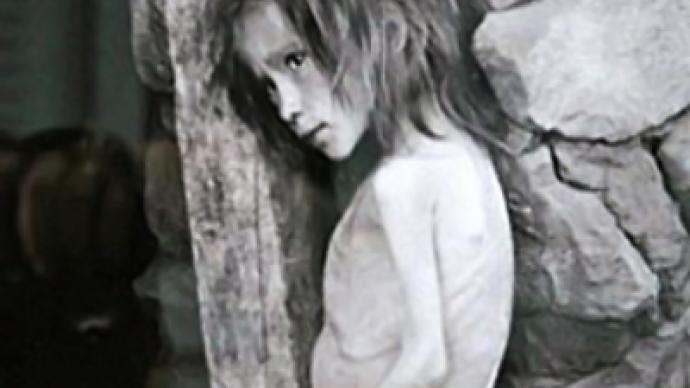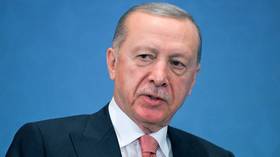Yushchenko brings Stalin to court over genocide

Kiev’s Court of Appeals has found Josef Stalin and other Bolshevik leaders guilty of genocide against the Ukrainians during the famine, or “Holodomor” as it is called in Ukraine, of 1932-33.
Criminal proceedings against the leaders of the “totalitarian rule” – Stalin, Molotov, Kaganovich, Postyshev, Kosior, Chubar and Khatayevich – were dropped "over the suspects' deaths."
Moscow was quick to react. The decision is “part of a plan aimed at initiating a row with Russia,” said the Speaker of Russia’s State Duma, Boris Gryzlov. Gryzlov, one of the leaders of the ruling United Russia party, believes that such a plan has been on the roll for several years now.
“The idea of Holodomor and the idea of Soviet genocide against the Ukrainian people in the 1930s is absolutely groundless,” the politician said. “Unfortunately, there are times when economic conditions lead to crop failure. And that is exactly what happened in 30s in the USSR.”
Gryzlov pointed out that the entire Soviet population suffered the consequences of the poor harvest, not only the Ukrainians. The point of the Kiev authorities’ latest move is simply to show that Russia treats Ukrainian people badly, he concluded.
It is not news that the mass famine was the result of “criminal actions of the state’s leadership,” the Head of the State Duma Foreign Affairs Committee Konstantin Kosachev told Interfax news agency. There is no need to artificially separate Ukraine from the rest of the former USSR, he added.
It is “absolutely obvious” that the Kiev court’s “marginal” ruling is politicized, he said. It provides no substantiated evidence of genocide against the Ukrainian people.
Kosachev, who also heads the Russian delegation to the Council of Europe's Parliamentary Assembly (PACE), said that on January 25 a report on the famine in the USSR in the 30s would be presented.
That document “will become a far more significant and important event” in the discussion of the famine issue, he said. When preparing the report, Kosachev noted, the speaker visited not only Ukraine, but also Russia, Belarus, and Kazakhstan.
In December last year, the Council of Europe said the hunger that killed millions in the Soviet Union cannot be described as a genocide that targeted the Ukrainian people. Therefore, the word “genocide” was removed from a draft report on the famine put forward by Ukraine.
“I am strongly convinced that the… decision is part of [the incumbent Ukraine’s head of state] Yushchenko’s presidential campaign and his desperate attempt to remain in power,” Kosachev told Interfax.
President Yushchenko has welcomed the “symbolic” court decision. “It restores historical justice and gives Ukraine the chance to build on fair and democratic principles,” he said as quoted on his official website.
Meanwhile, it is a busy time for the “Orange Revolution” leader as the presidential race nears its finish line and Yushchenko has hours left to attract more voters.
Yushchenko’s popularity is at rock bottom and it is almost impossible that anything will change before Election Day on January 17. Some analysts believe Yushchenko decided to play his last trump card with the “genocide” case.
On Thursday, Yushchenko called for the creation of an international tribunal for Communist crimes. The presidential press service reported that he asked leaders of Eastern Europe countries hurt by Communist regimes (Russia, Poland, Georgia, the Baltic States and others) to sign an international agreement on the creation of such a tribunal outlining the principles of its creation and activities, and charter, the Ukrainian presidential press service reported on Thursday.
Ukraine claims that 3.941 million of its people died during the famine. According to some of the state’s nationalist parties, Russia, as the successor of the USSR, should bear responsibility for the famine.













